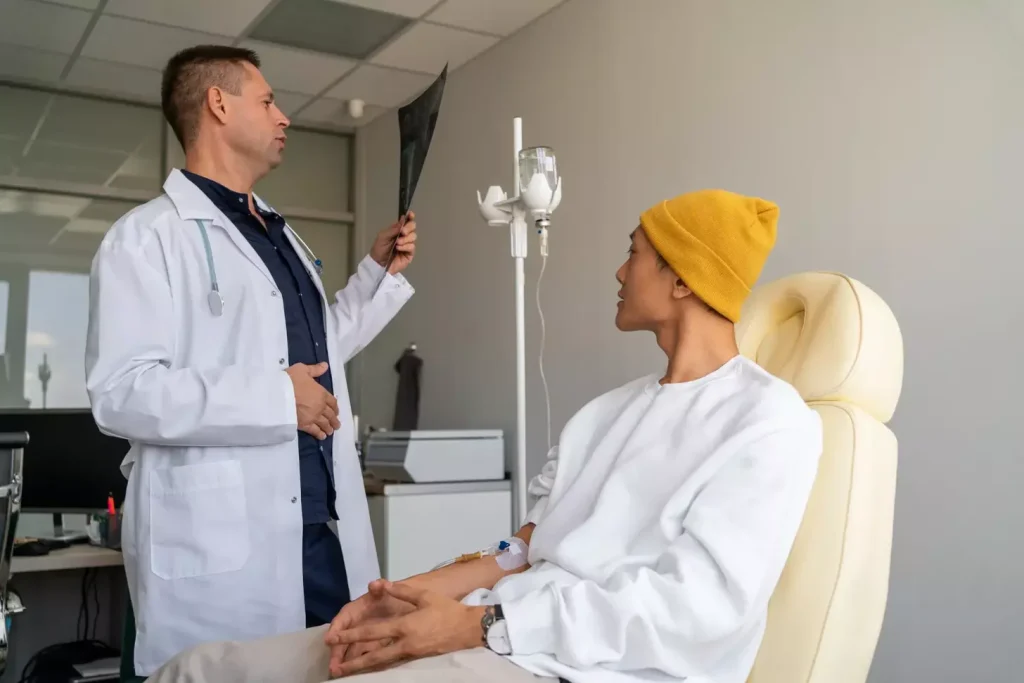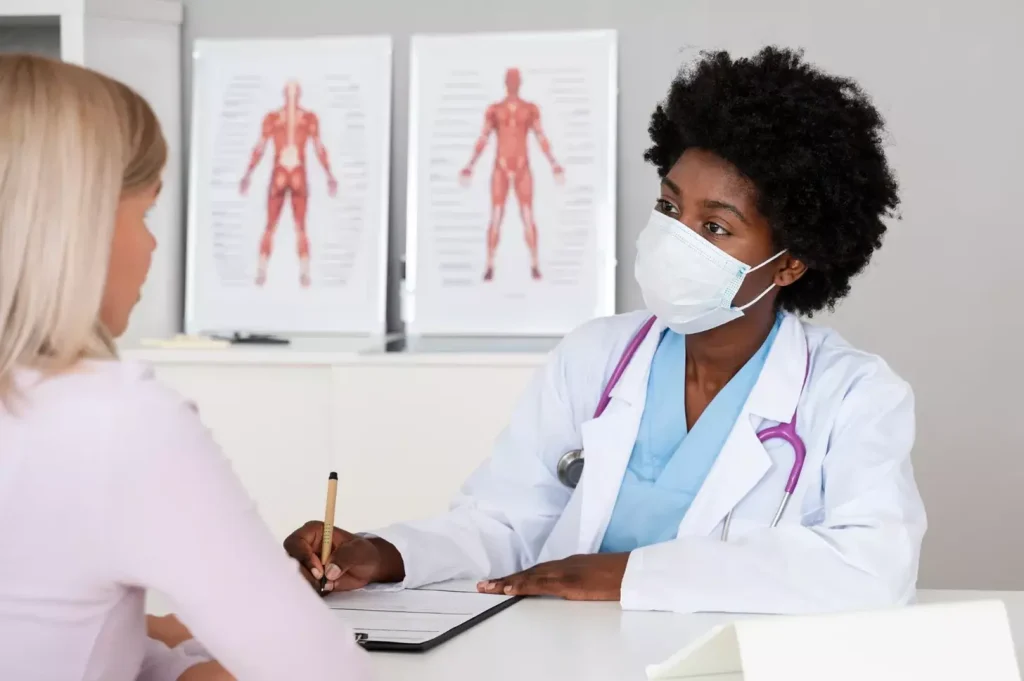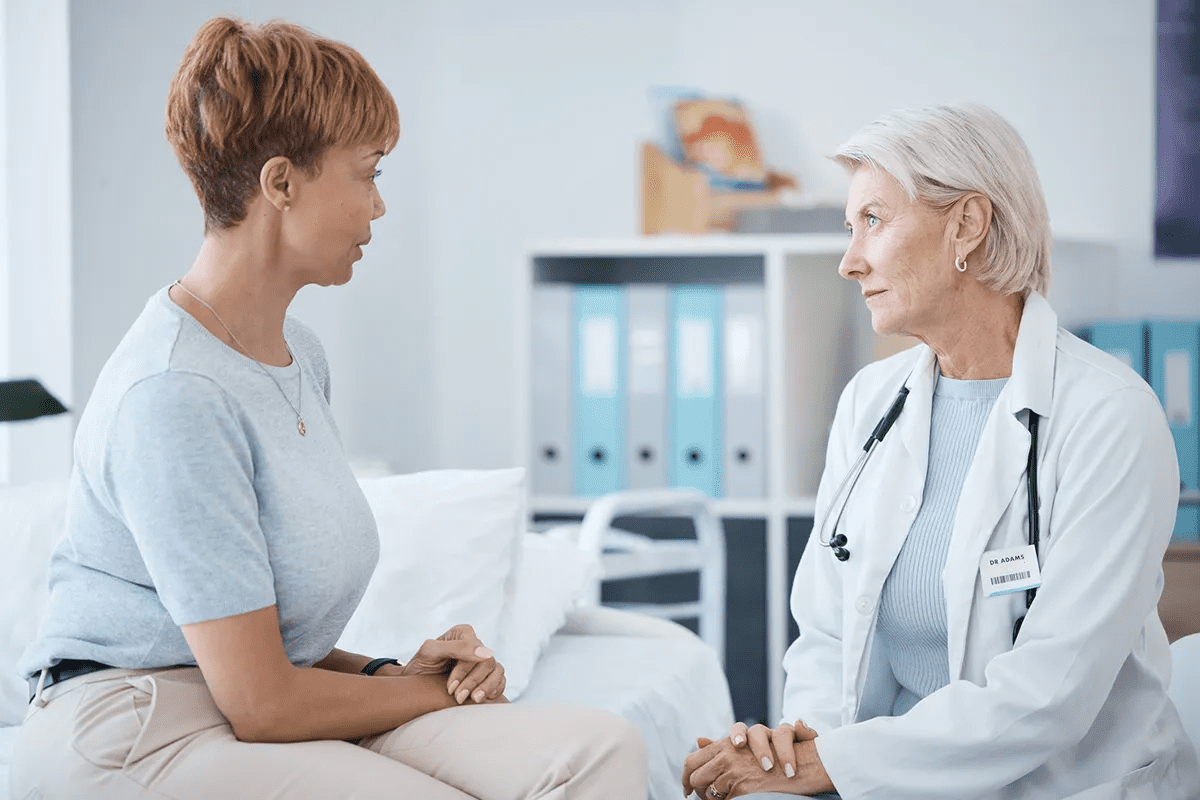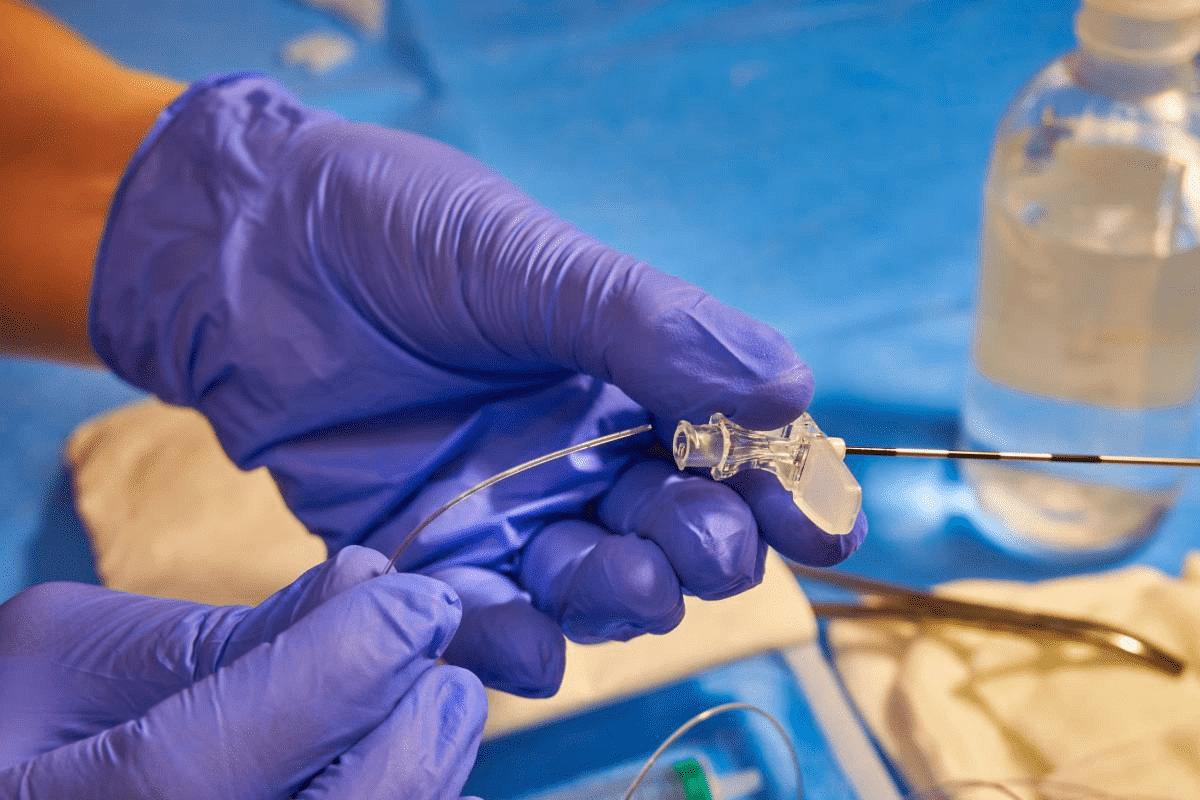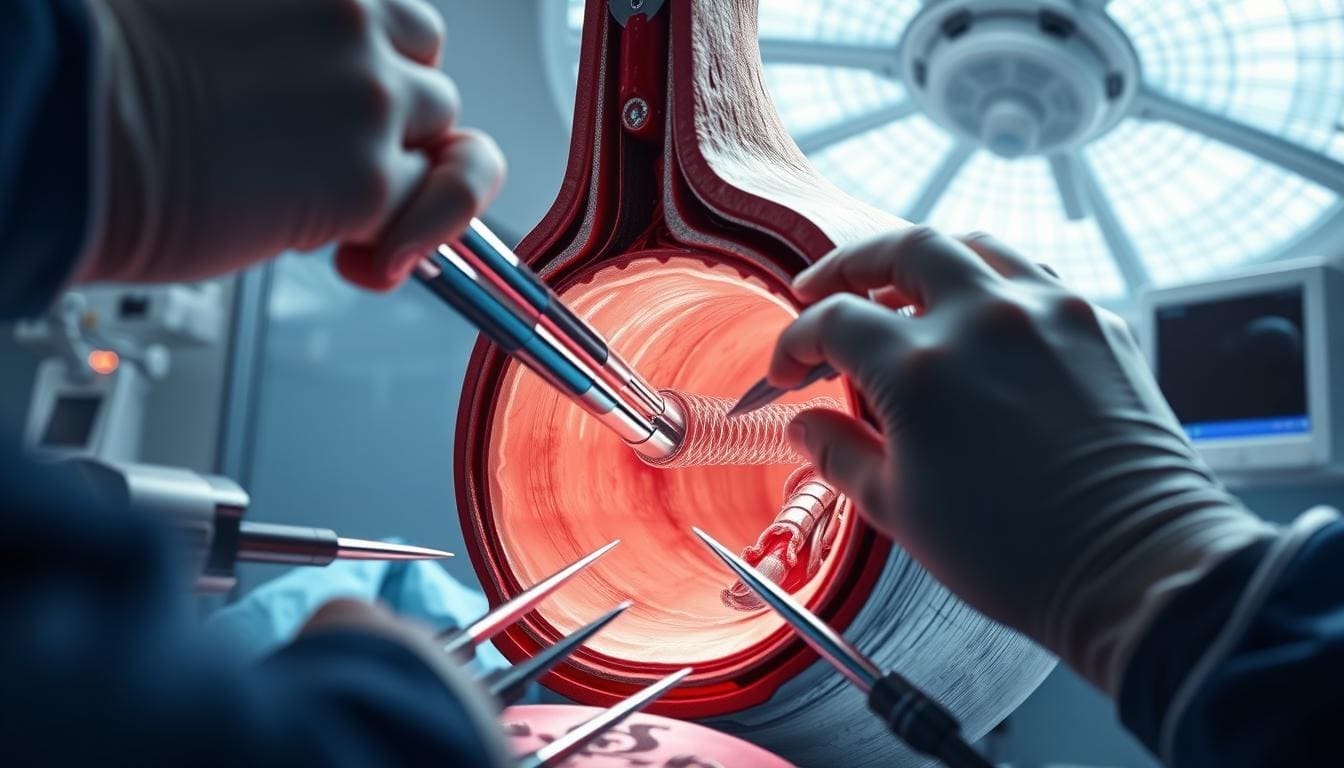Last Updated on November 26, 2025 by Bilal Hasdemir
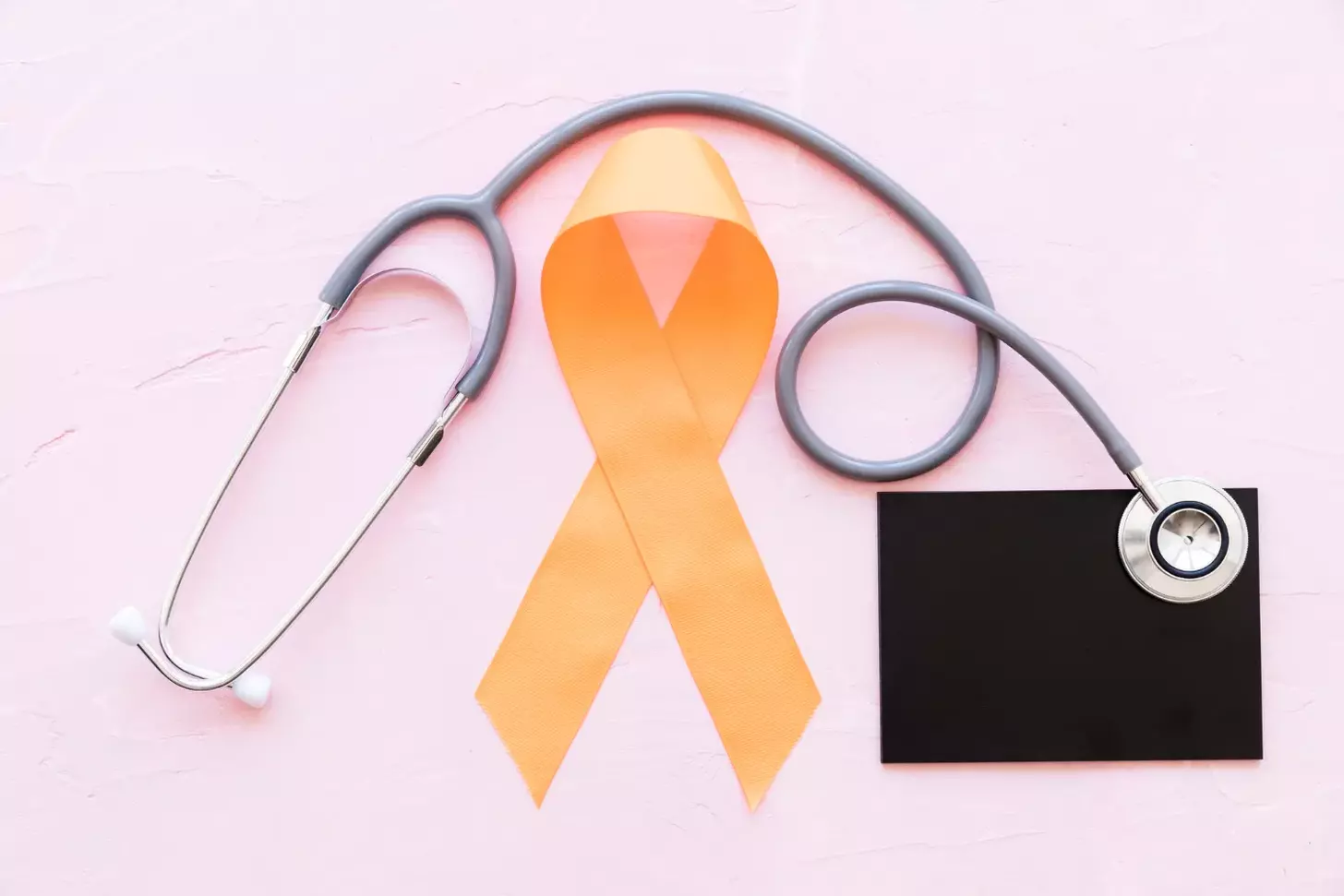
BCG therapy is a common treatment for bladder cancer, mainly for non-muscle-invasive types. It uses a weakened tuberculosis vaccine in the bladder to boost the immune system against cancer cells. At Liv Hospital, we focus on giving our patients the best care during BCG treatment.
Knowing the side effects of BCG therapy is key for those with bladder cancer. We will look at the 8 main side effects patients should know. This way, they can understand what to expect and when to get help.
Key Takeaways
- BCG therapy is a common treatment for non-muscle-invasive bladder cancer.
- Understanding the side effects is important for patients getting BCG treatment.
- Common side effects include flu-like symptoms, frequent urination, and fatigue.
- Less common side effects may include bladder spasms and urinary incontinence.
- Severe side effects, such as BCG sepsis, can be life-threatening.
How TB to Treat Bladder Cancer Works: Understanding BCG Therapy
BCG therapy is a key treatment for bladder cancer. It uses a weakened Mycobacterium bovis to boost the immune system. This method has been vital in treating non-muscle invasive bladder cancer.
What is BCG Immunotherapy?
BCG immunotherapy uses the body’s immune system to fight bladder cancer. It involves a live, weakened Mycobacterium bovis, the same as in the TB vaccine. By putting BCG into the bladder, the immune system attacks cancer cells.
This therapy works by activating immune cells. These cells, like macrophages and T lymphocytes, team up to kill cancer. This local immune action helps reduce cancer return and can clear out cancer cells.
The Connection Between Tuberculosis and Bladder Cancer Treatment
BCG therapy for bladder cancer uses Mycobacterium bovis, linked to TB. The BCG vaccine, made to fight TB, is now used to treat bladder cancer. It’s thought that BCG sparks a strong immune response against bladder cancer.
Standard Treatment Protocol and Administration
The BCG treatment involves weekly instillations for 6 weeks first. Then, maintenance therapy may follow, with more instillations every few months for up to 3 years.
| Treatment Phase | Frequency of BCG Instillations | Duration |
|---|---|---|
| Induction Phase | Weekly | 6 weeks |
| Maintenance Phase | Every 4-6 weeks, then every 3 months | Up to 3 years |
Knowing the treatment plan and what to expect with BCG therapy is important. Patients should stick to the treatment schedule and tell their doctor about any side effects.
Preparing for Your First BCG Treatment: What to Expect
Learning about BCG treatment can make you feel less anxious. It helps you prepare for what happens before, during, and after. Knowing what to expect is key.
Pre-Treatment Instructions
Your doctor will give you special instructions before your BCG treatment. You might need to avoid drinking fluids for 4 hours beforehand. This helps you not need to urinate during the treatment. Also, make sure to empty your bladder before starting.
Following these steps carefully is important for the treatment’s success.m
The Instillation Procedure
The BCG treatment involves putting a catheter into your bladder. A trained professional does this in a healthcare setting. Then, the BCG solution is put directly into your bladder through the catheter.
Immediate Post-Treatment Care
After your treatment, there are important steps to follow. You should keep the BCG solution in your bladder for about two hours before you urinate. When you do urinate, sit down to avoid splashing.
Flushing the toilet twice after use is also important. It helps prevent the BCG bacteria from spreading to others.
“After BCG treatment, it’s vital to follow proper hygiene practices to prevent the spread of the bacteria to others.”
For the first 6 hours, wash your hands well after using the bathroom. Avoid sexual contact during this time. For 48 hours, keep sitting down when you urinate and flush twice after. These steps are key for hygiene and safety.
| Pre-Treatment | During Treatment | Post-Treatment |
|---|---|---|
| Avoid fluids for 4 hours | BCG solution administered via catheter | Retain solution for 2 hours |
| Empty bladder before treatment | Procedure performed by healthcare professional | Sit down when urinating |
| Inform healthcare provider about medications and symptoms | Flush toilet twice after use |
Common Urinary Side Effect #1: Cystitis and Bladder Inflammation
BCG therapy for bladder cancer often leads to cystitis, or bladder inflammation. This can really affect a patient’s life during treatment. We’ll look at the symptoms, how long they last, and how to manage BCG-induced cystitis.
Recognizing Symptoms of BCG-Induced Cystitis
Symptoms of BCG-induced cystitis include needing to urinate often, feeling urgent, and pain while doing so. Some may also feel discomfort or pain in their pelvic area. These signs can be like those of a urinary tract infection.
Typical Duration and Severity
The time and how bad BCG-induced cystitis is can differ for everyone. Symptoms usually start a few hours to days after BCG treatment and can last several days. Sometimes, symptoms can keep coming back or stay throughout treatment. The pain can range from mild to very severe.
Effective Management Strategies
Managing BCG-induced cystitis involves a few steps. Drinking lots of water helps flush out the bladder and lessen irritation. Pain relief medicines can help with discomfort and pain. Sometimes, changing how often BCG is given can help with severe symptoms. We help patients create a plan to deal with cystitis and keep it from affecting their daily life too much.
Understanding symptoms and using good management strategies can help patients deal with BCG-induced cystitis. This way, they can keep up with their treatment without too much trouble.
Common Urinary Side Effect #2: Urinary Frequency and Urgency
BCG treatment for bladder cancer often changes how you urinate. You might need to go more often and feel a strong urge to go. These changes can make daily life harder and less comfortable.
Expected Changes in Urination Patterns
BCG therapy can make you urinate more and feel a strong urge to go. This happens because the BCG irritates your bladder, causing inflammation.
Common changes include:
- Increased frequency of urination, often with small amounts of urine
- A sudden, urgent need to urinate
- Discomfort or pain while urinating
Impact on Daily Activities
Changes in urination can affect your daily life and quality of life. Simple tasks become hard because you always need to find a bathroom.
Some of the ways urinary frequency and urgency can affect daily life include:
- Limiting social activities or outings due to concerns about finding a restroom
- Experiencing sleep disturbances due to nocturia (the need to urinate at night)
- Feeling anxious or stressed about managing urinary symptoms
Practical Coping Techniques
Managing urinary frequency and urgency can be tough, but there are ways to cope. Here are some strategies we suggest:
- Bladder Training: Gradually increasing the intervals between urinations to improve bladder capacity.
- Pelvic Floor Exercises: Strengthening the pelvic floor muscles through Kegel exercises to help control urination.
- Lifestyle Adjustments: Limiting fluid intake before bedtime, avoiding irritants like caffeine and spicy foods, and using absorbent products if necessary.
By using these strategies, patients can manage their symptoms better. This can improve their quality of life during BCG treatment.
Common Urinary Side Effect #3: Hematuria (Blood in Urine)
BCG therapy for bladder cancer can cause hematuria, which is blood in the urine. This happens because the bladder lining gets irritated during the BCG treatment.
Distinguishing Normal from Concerning Bleeding
It’s important to tell normal bleeding from the worrying kind. Mild hematuria is common and usually goes away by itself. But, if the bleeding is heavy or doesn’t stop, you should see a doctor. Look at how much blood, if there are clots, and how long it lasts.
| Characteristics | Mild Hematuria | Concerning Hematuria |
|---|---|---|
| Amount of Blood | Minimal, microscopic | Visible, heavy bleeding |
| Presence of Clots | Rare | Common |
| Duration | Short-term, resolves quickly | Prolonged, persistent |
Timeline for Resolution
How long hematuria lasts can vary. Usually, it goes away within a few days to a week after treatment. The severity of the BCG reaction and your health can affect this.
“Understanding the timeline for hematuria resolution can help alleviate concerns and guide patient expectations,” says a urologist specializing in bladder cancer treatment. “Most cases are self-limiting, but monitoring is essential.”
When Hematuria Requires Medical Intervention
Knowing when to see a doctor for hematuria is key. Heavy bleeding, clots, or if it keeps coming back are signs to get help right away. It’s good to know these signs to act fast.
Keep a record of your symptoms, like how bad the bleeding is. This helps your doctor figure out what to do next.
Systemic Side Effect #1: Flu-like Symptoms and Fever
BCG therapy can cause fever, chills, and body aches. These symptoms are part of the body’s immune response to the treatment.
Common Systemic Reactions
Flu-like symptoms are common after BCG immunotherapy. Patients might feel fever, chills, tiredness, and muscle or joint pain. A lot of patients report these symptoms, and their intensity can vary.
We suggest that patients keep a symptom diary. This helps healthcare providers tailor their support and interventions.
Managing Fever, Chills, and Body Aches
Over-the-counter medications like acetaminophen or ibuprofen can help with fever and body aches. It’s important to follow the recommended dosages and talk to your healthcare provider before taking any medication.
Staying hydrated and getting plenty of rest is key to recovering from the treatment. If symptoms don’t get better or get worse, seek medical attention.
“Adequate management of side effects is critical for maintaining quality of life during BCG therapy.”
Temperature Thresholds for Medical Attention
Some fever is expected after BCG treatment, but there are limits where you need to see a doctor. We tell patients to seek immediate care if their fever is over 101.5 °F (38.6 °C) or if they have severe chills, trouble breathing, or signs of dehydration.
Reporting severe symptoms quickly can prevent complications and ensure timely help.
Systemic Side Effect #2: Fatigue and Immune System Changes
BCG can make you feel tired and change how your immune system works. It’s important to know how BCG affects your energy and immune health.
Energy Level Fluctuations During Treatment Cycles
BCG treatment can make your energy levels go up and down. Fatigue can be mild or very strong. Keeping a daily log can help you see patterns and what might make you tired.
It’s key to manage your daily life and rest when needed. This helps you deal with BCG’s energy demands.
BCG’s Impact on Bone Marrow and Immune Function
BCG boosts your immune system, affecting bone marrow and immune function. This boost is good for fighting cancer but can also cause fatigue.
Studies show BCG can change how immune cells are made. We watch for signs of immune system problems or other issues.
Recovery Timeline and Support Strategies
Recovering from BCG-induced fatigue takes different times for everyone. Usually, energy comes back after treatment ends. But some might stay tired longer and need ongoing support.
| Support Strategy | Description | Benefits |
|---|---|---|
| Rest and Relaxation | Prioritizing sleep and engaging in relaxing activities | Reduces fatigue, improves overall well-being |
| Nutrition Counseling | Personalized dietary advice to manage fatigue | Enhances energy levels, supports immune function |
| Gentle Exercise | Low-impact physical activities like yoga or short walks | Boosts energy, improves mood |
Using these strategies can help manage BCG side effects like fatigue. We help patients create plans that fit their needs and situation.
Rare but Serious Complications: BCG Infection and Allergic Reactions
BCG therapy is usually safe, but serious complications can happen. BCG infection and allergic reactions are major concerns. They need quick action and the right treatment.
Signs of Systemic BCG Infection
Systemic BCG infection is rare but serious. It happens when BCG bacteria spread beyond the bladder. Symptoms include high fever, chills, and severe fatigue.
In severe cases, it can cause life-threatening conditions like sepsis or organ failure. If you have these symptoms, get medical help right away.
Allergic Response Symptoms
Allergic reactions to BCG therapy can be mild or severe. Common symptoms are rash, itching, and trouble breathing. Severe cases can lead to anaphylaxis, a medical emergency.
If you notice these symptoms, tell your healthcare provider right away.
Risk Factors and Prevention Strategies
Some factors can raise the risk of serious complications from BCG therapy. These include a weak immune system, traumatic catheterization, and other medical conditions. To lower risks, selecting the right patients, careful BCG administration, and monitoring during and after treatment are key.
Treatment Approaches for Serious Complications
When serious complications happen, quick and effective treatment is vital. For systemic BCG infections, antitubercular therapy is usually started. For allergic reactions, antihistamines or corticosteroids may be used, based on the severity.
In severe cases, hospitalization might be needed to manage these complications well.
It’s important for patients to know about these rare but serious complications and how to manage them. Being informed and alert helps patients work closely with their healthcare providers. This way, they can reduce risks and handle any problems quickly.
When to Seek Immediate Medical Help During BCG Treatment
Knowing when to get medical help is key for those getting BCG treatment for bladder cancer. BCG therapy is usually safe, but some situations need quick medical care to avoid serious problems.
Red Flag Symptoms That Require Urgent Care
Be on the lookout for these red flag symptoms that mean you need to see a doctor right away:
- Severe hematuria (heavy bleeding in the urine)
- Persistent high fever above 101.5 °F (38.6 °C)
- Signs of systemic infection, such as chills, fatigue, or confusion
- Severe pain or burning during urination
- Inability to urinate
If you notice any of these symptoms, call your healthcare provider without delay.
Emergency Contact Protocol
It’s important to have a plan for emergencies during BCG treatment. We suggest:
- Keep your healthcare provider’s contact info handy
- Have a 24-hour emergency number for your urologist or healthcare facility
- Tell your family or caregivers about your emergency plan
If an emergency happens, don’t wait to call your healthcare provider for advice.
Critical Information to Provide to Healthcare Providers
When you need medical help during BCG treatment, give your healthcare provider this important info:
| Information | Description |
|---|---|
| Current symptoms | Tell them about your symptoms, how bad they are, and how long you’ve had them |
| BCG treatment details | Share your BCG treatment info, like when you last had it |
| Medical history | Let them know about your medical history, including any BCG reactions |
| Current medications | Give them a list of all meds you’re taking, including supplements and herbs |
A well-known urologist, said, “Quickly telling your healthcare team about BCG issues is key to handling problems well.”
“Don’t hesitate to contact your healthcare team if you’re worried about symptoms. It’s always safer to be cautious with your health.”
By knowing the red flag symptoms, having an emergency plan, and sharing important info with healthcare providers, patients can get the quick medical help they need during BCG treatment.
Liv Hospital’s Approach to Managing BCG Side Effects
Liv Hospital is committed to giving the best care for BCG treatment patients. We aim to reduce side effects. BCG therapy is effective but can be challenging to manage.
Patient-Centered Care Protocols
At Liv Hospital, we focus on patient-centered care. We tailor our treatment to each patient’s needs. Our team works with patients to understand their situation and create a care plan that addresses their concerns.
One of our patients said, “The care I received at Liv Hospital was exceptional. The team was always available to answer my questions and address my concerns.”
“The staff at Liv Hospital were very supportive throughout my treatment. They made sure I was comfortable and informed every step of the way.”
State-of-the-Art Treatment Facilities
Our facilities are equipped with the latest technology. This allows us to provide quality care and manage BCG side effects effectively. We invest in upgrading our facilities to ensure our patients get the best treatment.
| Facility | Description | Benefit |
|---|---|---|
| Advanced Diagnostic Equipment | Latest technology for accurate diagnosis | Early detection of side effects |
| Specialized Treatment Rooms | Designed for comfort and safety | Reduced risk of complications |
Multidisciplinary Team Approach to Side Effect Management
Our team includes specialists from various fields. They work together to manage BCG side effects. This team approach ensures patients get complete care.
- Oncologists
- Urologists
- Nurses
- Support Staff
Follow-up Care and Monitoring
Follow-up care is key at Liv Hospital. We closely monitor patients after BCG treatment. This helps us quickly identify and manage any side effects.
By combining patient-centered care, state-of-the-art facilities, and a multidisciplinary team with rigorous follow-up care, Liv Hospital offers a complete solution for managing BCG side effects.
Conclusion: Navigating BCG Therapy with Confidence
It’s important for patients to know about BCG therapy’s side effects when fighting bladder cancer. Being informed and having support helps patients feel confident during treatment.
Handling BCG side effects well is key to a good treatment result. We talked about common and rare side effects like cystitis and flu-like symptoms. We also shared ways to manage them.
At Liv Hospital, we offer full support to patients during BCG therapy. We make sure they get the care they need to handle side effects and keep up with treatment.
With the right medical care and support, we help patients feel confident in their BCG therapy. They know they have the help and knowledge to face challenges and get a good result.
What is BCG therapy and how does it work in treating bladder cancer?
BCG therapy uses a weakened tuberculosis bacteria to fight bladder cancer. It’s given directly into the bladder. This triggers an immune response that kills cancer cells.
What are the common side effects of BCG treatment for bladder cancer?
Side effects include cystitis, bladder inflammation, and urinary issues. You might also see blood in your urine, feel flu-like, or get tired. These usually go away with time and proper care.
How can I manage cystitis and bladder inflammation caused by BCG therapy?
Manage symptoms with medications and good hygiene. Stay hydrated and follow your doctor’s post-treatment care instructions.
Is it normal to experience urinary frequency and urgency after BCG treatment?
Yes, these are common side effects. They usually go away in a few days. Drinking water, avoiding caffeine, and bladder training can help.
How can I distinguish between normal and concerning bleeding after BCG treatment?
Normal bleeding is mild and goes away quickly. But, heavy or persistent bleeding is a concern. If unsure, contact your doctor.
What are the signs of systemic BCG infection, and when should I seek medical help?
Look out for fever over 103 °F, chills, cough, or trouble breathing. Seek help right away if you have these symptoms.
How can Liv Hospital support patients undergoing BCG therapy?
Liv Hospital offers patient-centered care and advanced facilities. They have a team to manage side effects and ensure follow-up care.
What are the risk factors for rare but serious complications of BCG therapy?
Weakened immune systems, past allergies, or certain conditions increase risks. Talk to your doctor about your specific risks.
How can I prepare for my first BCG treatment?
Follow your doctor’s pre-treatment advice, stay hydrated, and arrive early. Knowing what to expect can help reduce anxiety.
What should I do if I experience red flag symptoms during BCG treatment?
If you have severe pain, trouble urinating, or high fever, call your doctor or go to the emergency room. Always have an emergency plan ready.


